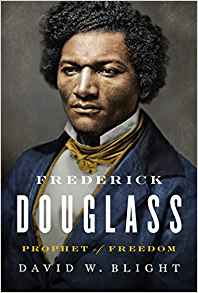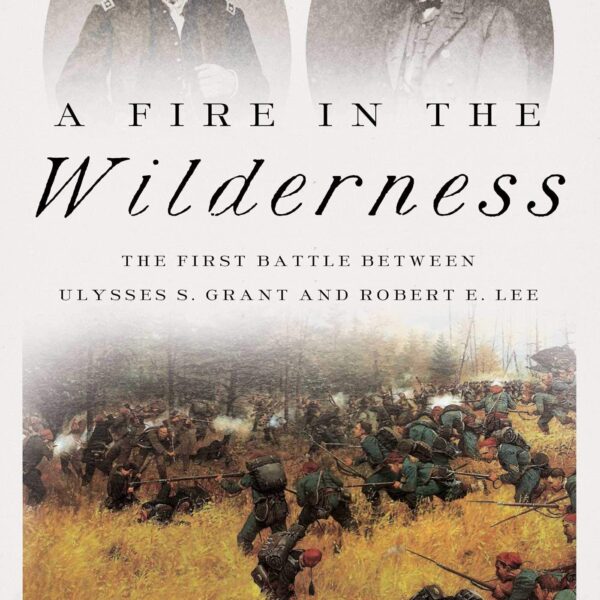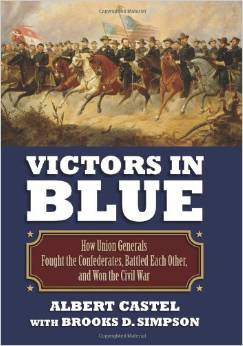Frederick Douglass: Prophet of Freedom by David W. Blight. Simon and Schuster, 2018. Cloth, ISBN: 978-1416590316. $37.50.
 Esteemed historian David Blight has produced a masterfully researched, nuanced, and beautifully written biography of Frederick Douglass. For a historical figure who penned three autobiographies, Blight reveals fresh insights on the African American abolitionist whose public writings, orations, and activism was deeply rooted in his unique Civil War era experience and the Hebrew prophetic tradition. Blight also delves into Douglass’s private life. His personal struggles for belonging, desire for a home, and trust issues complicated his marriage, father-child relationships, and friendships. Over seven-hundred pages, Blight deftly weaves a gripping narrative.
Esteemed historian David Blight has produced a masterfully researched, nuanced, and beautifully written biography of Frederick Douglass. For a historical figure who penned three autobiographies, Blight reveals fresh insights on the African American abolitionist whose public writings, orations, and activism was deeply rooted in his unique Civil War era experience and the Hebrew prophetic tradition. Blight also delves into Douglass’s private life. His personal struggles for belonging, desire for a home, and trust issues complicated his marriage, father-child relationships, and friendships. Over seven-hundred pages, Blight deftly weaves a gripping narrative.
Opening with Douglass’ dedication speech for the Freedmen’s Memorial in Washington, D.C., in 1876, Blight introduces readers to the complex ways that Douglass used memory, history, and oratory skills in pursuit of freedom. In this address, Douglass reminded the audience of Abraham Lincoln’s emancipatory role in defining the larger post-Civil War American family and African Americans’ inclusion as “his step children; children by adoption, children by forces of circumstances and necessity” (7). Douglass’s lack of knowledge of his real father contributed not just to this analogy, but also to his childhood of extremes, public silences on intimate aspects of his life, and his crusade for belonging in a nation for all African Americans. This striking opening allows for a deeper exploration of how Douglass’s formative experiences of slavery facilitated his transformation into a prophet of freedom.
While having a “hustler’s ability to learn,” Douglass could never overcome the trauma of slavery (22). Slavery influenced his perception of the world, including sights, sounds, smells, and the humanity of enslaved people encountered. It contributed to his mistrust of others, limited friendships, and generated intense feuds. His childhood memories resulted in a patronizing tone toward the other enslaved Maryland Eastern Shore people he discussed in his first autobiography. By stealing an education as he had food, he developed an “insatiable desire for knowledge through a love of words” and became a “dangerous slave rebel” (54, 57). This rebellion manifested itself in the defeat of Mr. Covey and successful escape with the assistance of Anna Murray, his future wife.
Following his self-emancipation, Blight catapults readers into the African American and white abolitionist circles that cultivated his transformation into a prophet of freedom. These communities financially sustained Douglass and his growing family, including financing his home and securing his manumission. These communities provided him with employment and the ability to reinvent himself from a fugitive to the self-made man regularly discussed in postbellum lectures. More importantly, these communities allowed him to develop his voice as a writer and orator; he achieved prophet-status advancing African American freedom and citizenship.
Douglass found his powerful voice and confidence in himself on the anti-slavery circuit in the United States, Canada, and the United Kingdom. Fame and reception of his first autobiography allowed him to distance himself from William Lloyd Garrison and other white abolitionists. As Blight states, “Douglass had books to sell, a career to promote, and his liberty to protect” (161). With his second autobiography, Douglass is more revealing and revolutionary in the struggle for abolition. During the 1850s, he turned the Fugitive Slave Law into a national struggle, joined the Republican Party, and forged friendships with John Brown. By the secession crisis, Douglass welcomed impending Civil War as an Abolition War and promoted Brown as martyr who had “not failed” but “dropped an idea” (311). This anti-slavery crusade, according to Blight, is demonstrative of Douglass’s brand of millennialism as an “active faith” for the promotion of African American freedom and inclusion in the national body politic (349).
Deeming the Civil War a “holy war,” the conflict ushered a new era in Douglass’s prophetic influence. Douglass fomented an “abolition war” from 1861 to 1863 (358). He conferred with President Lincoln on the “satanic spirit of colonization,” abolition, and African American citizenship (375). Douglass actively recruited African American soldiers while attempting to eliminate racism within the federal military war effort. He even sacrificed several sons who “caught the spirit” and enlisted (396). By the war’s end, Blight astutely concludes, Douglass saw how “one America died a violent necessary death, out of its ashes, a second, redefined America came into being amid destruction and explosions of hope” (417). As a founding father of “this emerging second American republic,” Douglass’s activism shifted (417). He now focused on Reconstruction policies, battles over the meaning of the Civil War and emancipation, suffrage, Haitian independence from American imperialism, and anti-lynching. He persisted until his own death in 1895.
Despite achieving a prophet status, Blight does not sugarcoat Douglass’s failures. His familial relationships were fraught. The abolitionist lecture circuit meant that he was an absentee father during his children’s childhood. While he became a doting grandfather, personal guilt resulted in his financial support of his adult children and their respective families. He also failed at operating several newspapers and even threatened his own matrimonial happiness by employing two white women in their operations—one of whom committed suicide upon learning of his second marriage, but not before bequeathing him $13,000 (658). Professionally, he failed at several postwar ventures. Failure occurred during the proposed annexation of Santo Domingo. Even after donating $10,000 of his own money, his leadership could not save the Freedmen’s Bank (548). He even touted American imperialist propaganda before his position in Haiti prompted a reversal on American expansion. African Americans rightfully criticized him for securing Republican patronage positions for his family. These professional and personal failures reveal his Douglass’s humanity in ways that his three autobiographies do not. In this regards, Blight’s portrayal of a complex and yet flawed founder of the second American republic is compelling.
Overall, David Blight offers refreshing insights into Douglass’s intellectual tradition, activism, achievements, and failures. This biography is an essential text that will shape academic scholarship, introduce Douglass to wider non-academic audiences, and perhaps even inspire a Broadway musical.
Hilary Green is an Associate Professor in the Department of Gender and Race Studies at The University of Alabama.




